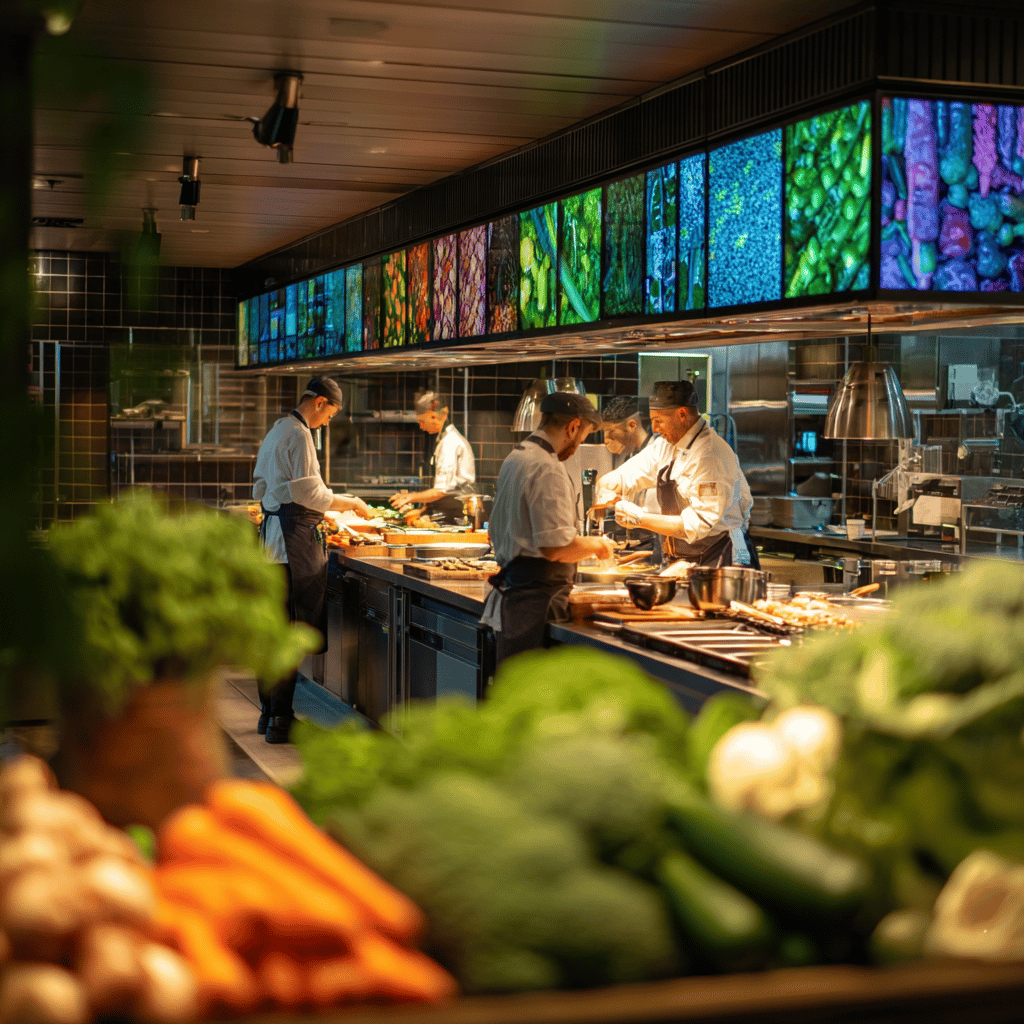Artificial intelligence is steadily embedding itself into the daily operations of restaurants and hotels, often in subtle ways that the average diner would never notice. Beyond the more visible applications such as simplifying the reservation process or assisting in the design of menus, this technology is increasingly being harnessed to confront one of the most persistent and costly challenges in the culinary world: the staggering levels of food waste.
Food waste represents an extraordinary financial and environmental burden for the hospitality industry. Current estimates place annual losses in excess of $100 billion, a figure that reflects both wasted resources and lost revenue opportunities. According to ReFED’s comprehensive 2025 analysis of American food waste, businesses across the United States generated surplus food in 2023 valued at roughly $108 billion. Such waste is not merely a financial concern; its environmental consequences are severe, as discarded food contributes around 8% of total global carbon emissions, exacerbating the climate crisis. The dual pressures of financial loss and ecological damage underscore the urgency of adopting innovative solutions.
Against this backdrop, AI-powered systems offer a beacon of hope. By leveraging machine learning and real-time data analysis, these tools can help chefs make informed choices about production levels, reduce surplus, and even reimagine waste by transforming trimmings or leftovers into new culinary creations. These efforts both reduce costs and elevate sustainability while offering chefs fresh opportunities for creativity.
One notable development in this space involves the use of Winnow, a sophisticated AI-driven waste management platform. In 2022, the Four Seasons Peninsula Papagayo in Costa Rica implemented Winnow to tackle excess food production in its extensive breakfast buffet. The system, now utilized by chefs in more than 90 countries, integrates a digital scale with a motion-sensor camera capable of identifying over a thousand distinct food items. The data is instantly transmitted to kitchen staff via clear on-screen displays and compiled into daily and weekly reports, enabling immediate and informed adjustments.
Winnow has become a recognizable leader in the industry, but it is far from alone. Other companies are making strides with innovative approaches. Orbisk, for example, employs a scanning process requiring food to be presented before disposal, while Leanpath combines AI insights with comprehensive training services, recommending tailored strategies to cut waste. These differing approaches illustrate the versatility with which AI can be applied to food systems worldwide.
The tangible impact of such technologies is striking. Within merely eight months of adopting Winnow in two primary kitchens and the staff cafeteria, the Peninsula Papagayo achieved a remarkable 50% reduction in food waste. Chef Emiliano Rabia Sottil attributes this progress not only to more precise buffet management but also to broader changes in how his team approaches unused materials. Vegetable scraps now routinely serve as the basis for stocks, while excess meals are redirected from employee dining areas to local food banks, ensuring resources nourish the community rather than fill landfills.
Similar success stories can be found elsewhere. At Ireland’s Ashford Castle and its sister property, The Lodge at Ashford Castle, both owned by the Red Carnation Hotel Collection, Winnow has been integral to ongoing sustainability initiatives since 2019. By 2024, Ashford Castle had managed to slash its waste output by 69%, while The Lodge reached extraordinary reductions, including a 90% decline in waste from food trimmings and a 58% reduction in overall waste. These achievements highlight the scalability of AI-enabled solutions across varying types of kitchens.
Beyond reducing waste, chefs at these properties are demonstrating remarkable ingenuity in repurposing ingredients. Surplus sourdough is transformed into crisp crackers, while excess croissants evolve into rich bread-and-butter puddings. Fruit and vegetable remnants are fermented or preserved into kombucha, vinegars, chutneys, and even vibrant pestos crafted from carrot tops. Leftover meats are also given new culinary life: chicken skin crisps become amuse-bouches, pork rinds are transformed into savory bar snacks, and beef trimmings are reimagined as signature spring rolls paired with chutney and pickled vegetables. These practices not only reduce waste but also inspire creativity and enhance the menus themselves.
According to Liam Finnegan, executive head chef at Ashford Castle, the arrival of Winnow has heightened awareness among staff and fostered a culture of respect for ingredients. He observed that meals once dismissed as unusable now form the basis of some of the property’s most inventive and popular dishes. This shift in mindset encourages chefs to treat every scrap as a potential ingredient, thereby reshaping longstanding kitchen practices.
The integration of AI into kitchens has also been well received by staff, particularly younger culinary professionals who find the technology intuitive and engaging. Jonathan Keane, head chef at The Lodge, notes that younger team members exhibit strong enthusiasm for interactive AI tools, viewing them not as burdens but as assets that enhance their training and professional development. At the Four Seasons, what initially seemed like a potentially complex system has quickly become second nature, seamlessly blending into routine operations. As Chef Sottil emphasizes, shaping a sustainable kitchen depends on cultivating a culture of ongoing mindfulness in daily tasks.
This cultural shift extends beyond the kitchen itself into broader sustainability programs. At the Peninsula Papagayo, AI tools are just one component of an expansive environmental strategy that includes working closely with local suppliers and implementing comprehensive composting practices. The emphasis on building sustainability into everyday routines reflects the resort’s commitment to long-term ecological stewardship.
As the festive season approaches, Rabia Sottil and his team are designing buffets that combine familiar guest favorites with carefully calibrated preparations guided by AI insights to ensure minimal waste. Underpinning all of these efforts is a philosophy of mindful dining — the conviction that technology should not only reduce inefficiency but also inspire deeper respect for food and resources. In sum, AI is pushing the hospitality sector to reimagine not just how it serves meals, but how it values every ingredient, every scrap, and every opportunity to create a more sustainable future.
Sourse: https://www.businessinsider.com/ai-food-waste-management-chefs-hotel-menus-2025-9



